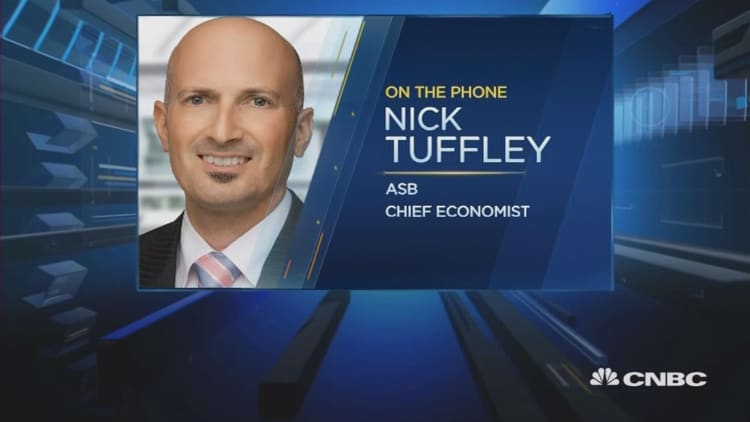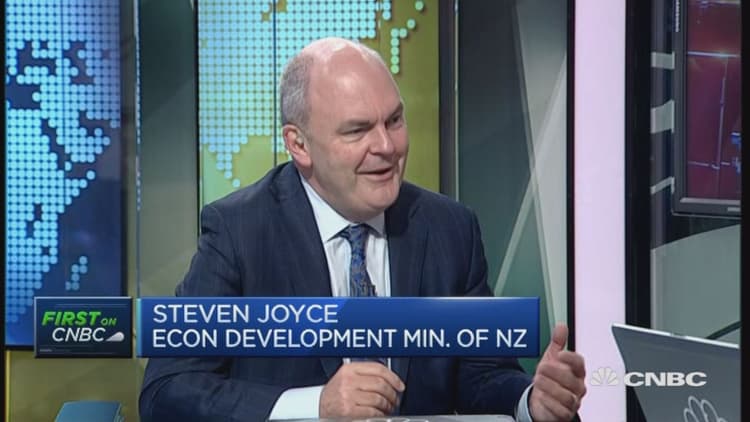New Zealand's central bank held its benchmark interest rate steady on Thursday, and retained an easing bias as it voiced concern about the overheated housing market.
Fourteen of 23 economists polled by Reuters expected the Reserve Bank of New Zealand to keep rates on hold at a record low 2.25 percent on Thursday while nine expected a quarter-percentage point rate cut.
"Further policy easing may be required to ensure that future average inflation settles near the middle of the target range," said RBNZ Governor Graeme Wheeler in a statement accompanying the decision.
The climbed to $0.7117 from around $0.7020 before the statement. It has since stepped back to $0.7094.

The central bank is mandated with keeping annual inflation at between 1 percent and 3 percent. It is currently running at 0.4 percent.
Wheeler said, however, the central bank expects inflation to quicken and noted that long-term inflation expectations are "well-anchored" at 2 percent. Also, "after falling in recent quarters, short-term inflation expectations appear to have stabilized," he added.
On the domestic front, Wheeler voiced particular concern about New Zealand's overheated housing market.
New Zealand's housing prices, stoked in part by low interest rates in addition to high levels of immigration, are the second fastest-growing in the world after Qatar, according to the International Monetary Fund.

"House price inflation in Auckland and other regions is adding to financial stability concerns," said Wheeler.
ANZ Senior Economist Philip Borkin said Wheeler's comments about the housing market were key.
"There's one important statement in there and that's around the housing market. They're now saying it's a financial stability risk," he said.
He still expects further easing "at some stage," but noted the statement had a less dovish tone than what they said in March.

